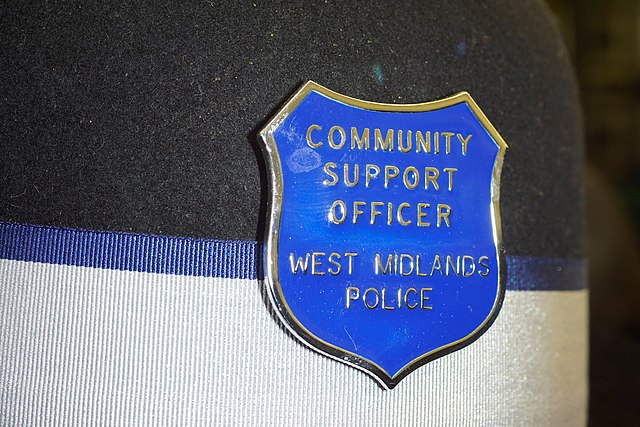Police community support officer
A Police Community Support Officer, or as written in legislation Community Support Officer, is a uniformed member of police staff in England and Wales, a role created by Section 38(2) of the Police Reform Act 2002, which was given Royal Assent by Queen Elizabeth II on 24 July 2002. They are not warranted, but hold a variety of police powers and the power of a constable in various instances by the forty-three territorial police forces in England and Wales and the British Transport Police.
A West Midlands Police PCSO (left) on foot patrol with a constable (right)
A metal shield, one of the different hat badge designs worn by PCSOs.
A PCSO of the Metropolitan Police on duty during the Pride London Parade, July 2011
Two PCSOs (right) with two Police Constables of the City of London Police. Note the unique red edging of the reflective bands and the red shield badges on the headgear of the PCSOs.
A warrant card is proof of identification and authority carried by police officers and some other law enforcement officers including immigration officers and Approved Mental Health Professionals. The term is normally used only within the United Kingdom and in current and former Commonwealth countries. Many other countries refer to their equivalent of warrant cards simply as police credentials, commission books, or identification cards. In the UK MI5 officers also have warrant cards. Specially trained mental health practitioners called Approved Mental Health Professional are also warranted council officers and carry warrant cards when acting under the Mental Health Act 1983.
A warrant card holder for the Metropolitan Police.
A warrant card issued to a special constable in Wolverhampton in 1954






